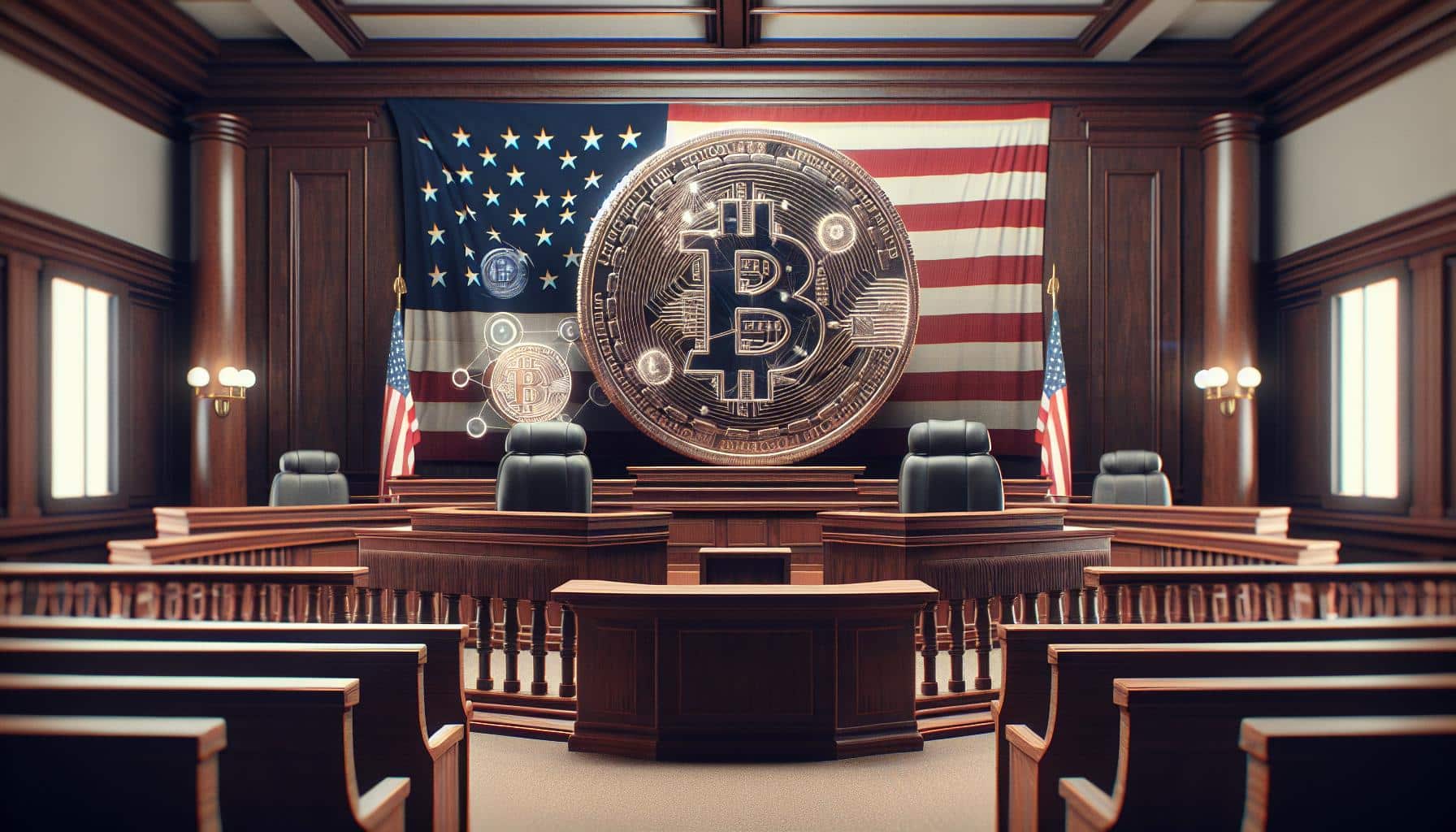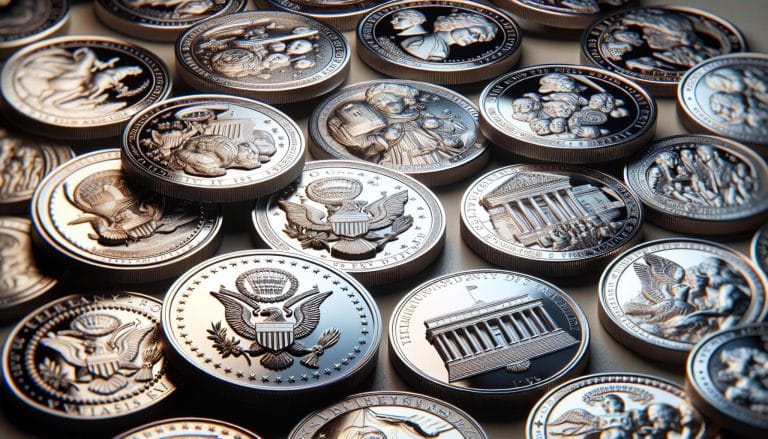XRP vs SEC: Unfolding Drama Rattles Crypto World
You’ve probably heard the buzz around the ongoing legal battle between Ripple Labs, the company behind XRP, and the Securities and Exchange Commission (SEC). It’s a high-stakes showdown that could reshape the landscape of cryptocurrency regulation.
In the heart of this controversy, you’ll discover intricate details about securities laws, the future of digital assets, and the role of regulatory bodies. It’s a complex, evolving story with global implications, and it’s crucial for anyone interested in the world of cryptocurrency.
So, let’s dive in, and unravel the complexities of this legal tussle, one development at a time. This article will guide you through the labyrinth of the XRP vs SEC saga, providing context, clarity, and understanding.
Overview of XRP vs SEC Conflict
Delving into the heart of the XRP vs SEC conflict, it’s imperative to understand the critical issues and four-dimensional timeline that paints the entire picture.
Key Issues in the Legal Battle
Dovetailing from the precursor section that highlighted the legal showdown between Ripple Labs, creators of the XRP cryptocurrency, and the SEC, we can enumerate the primordial issues engendering the dispute:
- Classification: Ripple asserts its digital currency XRP stands apart from its operations, contrary to the SEC’s belief which characterizes XRP as a security, thereby under its jurisdiction.
- Investor Protection: SEC contends Ripple isn’t safeguarding its investors, which Ripple denies, stating that its users are aware of XRP’s market risks.
- Utility: Ripple maintains that XRP has a utility as a bridging currency in international transactions, unlike traditional securities.
- Unregistered Securities: SEC alleges Ripple performed an unregistered securities sale by raising $1.3 billion over seven years through its XRP sales.
As you unravel these intricacies, two facets become evident: the outcome of this legal battle has far-reaching implications not just for XRP, but the crypto world at large; and the traditional metrics for defining “securities” may need reevaluation in the digital asset context.
Timeline of Events
Navigating chronologically through the series of events enlightens your understanding of the collision path that brought XRP and SEC into the courtroom:
- April 2015: Ripple pays a $700,000 penalty to the Financial Crimes Enforcement Network (FinCEN) for not registering as a “Money Services Business.”
- December 2020: SEC files a lawsuit against Ripple Labs, alleging sales of unregistered securities (XRP).
- January 2021: Ripple officially responds, contending that XRP is a virtual currency and thus outside SEC’s jurisdiction.
- April 2021: Ripple scores a legal victory when a judge denies the SEC’s request for personal financial records of Ripple’s executives.
Through all the legalese and battles, the prevalent takeaway is the profound effect this case has on cryptocurrency regulations. Consequently, the crypto community watches keenly, as the fallout could redefine the underpinnings of digital asset supervision.
Impact of the Legal Case on XRP
Enter the whirlwind of market speculation and investor concern caused by the legal tussle between XRP and SEC. Arise two central themes: Price Volatility and Investor Reaction.
Price Volatility
The legal case took a hefty toll on the XRP price. Notably, in literal terms, it dipped by 51% in the week following SEC’s filing against Ripple Labs in December 2020, according to data from CoinMarketCap. The XRP price moved like a rollercoaster, showing high instability and uncertain projections.
However, it wasn’t all gloom and doom for XRP. Remarkably, in April 2021, after Ripple’s minor victories in court, the price surged to a high of $1.96, a level not seen since January 2018.
Investor Reaction
The investor community’s reaction has been quite polarized. Crypto-savvy investors stayed put, notwithstanding potential legal outcomes. For instance, SBI Holdings, a Japanese financial giant, continued its support for Ripple, dismissing the likelihood of XRP being deemed a security.
Contrastingly, some investors pulled out, fearing the fallout of SEC’s action. Major platforms like Coinbase, OKCoin, and Crypto.com halted XRP trading, which triggered significant outflow.
The ‘one-hour’ XRP news affected the investor decisions rapidly. SEC’s move sparked discussions on fintech forums, and crypto trade platforms about the digital asset’s future. These reactions underscore the importance of regulatory clarity in the crypto space, especially when addressing investor protection concerns against the backdrop of the XRP lawsuit.
Enduring this tumultuous journey, XRP stood as a bellwether for potential regulatory overhauls in the crypto ecosystem. As the ripple news today suggests, it continues to navigate the choppy waters of financial regulation, striving for a reevaluation of the legacy security Status Quo.
Regulatory Implications of the SEC’s Case Against XRP
The SEC’s lawsuit against Ripple Labs, the creators of XRP, has far-reaching effects on the entire cryptocurrency community, directly impacting regulations and setting precedence for future cases.
Future of Cryptocurrency Regulations
The SEC’s case against XRP instigates serious discourse about future cryptocurrency regulations. To begin, this lawsuit confirms that the crypto industry isn’t immune from regulatory oversight, notwithstanding the decentralized nature of cryptocurrencies. This makes a compelling precedent for other digital currencies, potentially inviting more investigations and regulatory measures.
Furthermore, it drives the demand for certain, definitive crypto regulations instead of dealing with digital currencies on a case-by-case basis. For instance, the ambiguity surrounding XRP’s classification – whether as a security or a currency – exemplifies this need. A common regulatory framework, enforcing transparency and safeguarding investor interest, can emerge, keeping in mind this lawsuit.
Comparisons to Other Crypto Legal Cases
Drawing parallels with other crypto legal cases brings the uniqueness of SEC’s case against XRP into perspective. Unlike the SEC’s legal battles with Initial Coin Offerings (ICOs) that were often labeled as unregistered securities, the XRP case is noteworthy for a significant reason. Ripple Labs does not conform to the typical mold of a company holding an ICO, thus challenging the conventional logic behind defining a cryptocurrency.
Comparatively, the legal showdown mirrors the SEC’s case against Telegram’s GRAM tokens and Kik’s Kin tokens, with much at stake. However, XRP enjoys a widespread investor base and utility compared to GRAM or Kin tokens. Consequently, the outcome of this lawsuit holds broader implications for the crypto market, potentially steering the course of future cryptocurrency regulations.
While not specifically impacting the SEC case against XRP, the diverse cryptocurrencies like GME or TESLA stocks from FintechZoom, are also cases that bring attention to the blurred lines of crypto definitions and the need for regulatory clarity.
This historical legal clash between the SEC and XRP, therefore, serves as a spotlight on the crypto industry, emphasizing its compliance with existing regulations and the necessity to forge a comprehensive regulatory framework moving forward.
Stakeholder Perspectives
Dive into the varied perspectives surrounding the controversial XRP vs SEC debacle. Understand the positioning of both the investors who put their faith and money into XRP, and that of SEC, the regulatory watchdog.
XRP Investor Concerns
Investors in XRP have spent many sleepless nights ever since the allegations surfaced. At the core of their concern lies the security classification of XRP.
SEC’s stance that Ripple’s XRP tokens classify as unregistered securities raises significant fears among investors. If classified as a security, XRP couldn’t be sold without prior registration — a step Ripple hadn’t undertaken. A prime worry is the potential of XRP delisting from major exchanges following SEC’s verdict.
Moreover, the ambiguity on the future of their holdings haunts the investors. Ripple’s legal battles add a layer of uncertainty, impacting XRP’s market performance and the immediate liquidity available to its investors should they wish to divest.
Lastly, investors fear potential losses. Given XRP’s highly volatile nature, the ongoing legal dispute plays a significant role in shaping its price trajectory. Sharp price swings unequivocally fuel investor apprehension.
SEC’s Standpoint on Cryptocurrencies
The SEC, tasked with enforcing securities laws, seeks to protect investors. It accords high priority to the fair and orderly operation of markets.
In the context of cryptocurrencies, the SEC broadly perceives them as securities. It opines that digital assets creators often engage in the conduct characteristic of a securities offering. Particularly, it holds that initiatives involving cryptocurrencies, which promise future returns to investors, fall under the securities category.
The issue between XRP and SEC points at larger implications surrounding how crypto assets are regulated. The ongoing case against XRP could pave the way for increased scrutiny and possible regulatory changes affecting the entire crypto community.
In the SEC’s view, clear guidelines and stringent regulations will facilitate the continued growth of cryptocurrencies. These steps contribute to investor safety and a more robust capital market system. Though a stringent stance, it aims to maintain the transparency and integrity of financial markets.
Continuing to monitor the developments in the XRP vs SEC news is crucial. It reveals not just the future of one crypto asset, but potentially sets precedent for the regulatory treatment of others — a ripple effect, indeed.
Conclusion
You’ve navigated the complex terrain of the XRP vs SEC legal battle. It’s clear that this case isn’t just about Ripple Labs—it’s about the future of cryptocurrency regulation. The outcome could set a precedent for how digital assets are classified and regulated. Investor fears and market uncertainties are real and valid, underscoring the need for clear guidelines and stringent regulations. The SEC’s stance on cryptocurrencies is pivotal in shaping this landscape. It’s crucial that you keep an eye on this case, as it holds broader implications for the industry. As the crypto community watches and waits, remember that this is more than a legal dispute—it’s a defining moment for the future of cryptocurrencies.
Frequently Asked Questions
1. What is the dispute between Ripple Labs and the SEC about?
The disagreement revolves around whether XRP, Ripple Labs’ cryptocurrency, should be classified as a security. The SEC alleges that Ripple sold unregistered securities when it sold XRP.
2. How has this legal battle impacted the cryptocurrency market?
This issue has caused significant uncertainty in the crypto market. Some platforms have delisted XRP owing to this dispute, and investors are wary as they monitor the legal developments to understand their implications on cryptocurrency regulation.
3. What does the SEC aim to achieve with cryptocurrency regulations?
The SEC is interested in establishing clear regulations to protect investors, maintain fair, orderly, and efficient markets, and facilitate capital formation in the cryptocurrency industry.
4. How could the XRP vs SEC case influence future regulatory treatment of cryptocurrencies?
The ongoing case is highly watched because it could set a precedent for how the SEC and other regulatory bodies classify and regulate cryptocurrencies in the future.
5. How important is tracking developments in this case for industry stakeholders?
Keeping abreast of developments in this case is vital as it has broader implications on the crypto industry. It can shape regulatory approaches, market reaction, and stakeholder sentiments, influencing the future of cryptocurrencies.








 Bitcoin
Bitcoin  Ethereum
Ethereum  Tether
Tether  XRP
XRP  USDC
USDC  Solana
Solana  TRON
TRON  Lido Staked Ether
Lido Staked Ether  Figure Heloc
Figure Heloc  Dogecoin
Dogecoin  WhiteBIT Coin
WhiteBIT Coin  USDS
USDS  Cardano
Cardano  Bitcoin Cash
Bitcoin Cash  Wrapped stETH
Wrapped stETH  LEO Token
LEO Token  Hyperliquid
Hyperliquid  Wrapped Bitcoin
Wrapped Bitcoin  Monero
Monero  Binance Bridged USDT (BNB Smart Chain)
Binance Bridged USDT (BNB Smart Chain)  Chainlink
Chainlink  Ethena USDe
Ethena USDe  Canton
Canton  Stellar
Stellar  Wrapped eETH
Wrapped eETH  USD1
USD1  Rain
Rain  sUSDS
sUSDS  Dai
Dai  Hedera
Hedera  PayPal USD
PayPal USD  Coinbase Wrapped BTC
Coinbase Wrapped BTC  Litecoin
Litecoin  Avalanche
Avalanche  Zcash
Zcash  WETH
WETH  Sui
Sui  Shiba Inu
Shiba Inu  Cronos
Cronos  USDT0
USDT0  Tether Gold
Tether Gold  Toncoin
Toncoin  World Liberty Financial
World Liberty Financial  MemeCore
MemeCore  PAX Gold
PAX Gold  Polkadot
Polkadot  Uniswap
Uniswap  Ethena Staked USDe
Ethena Staked USDe